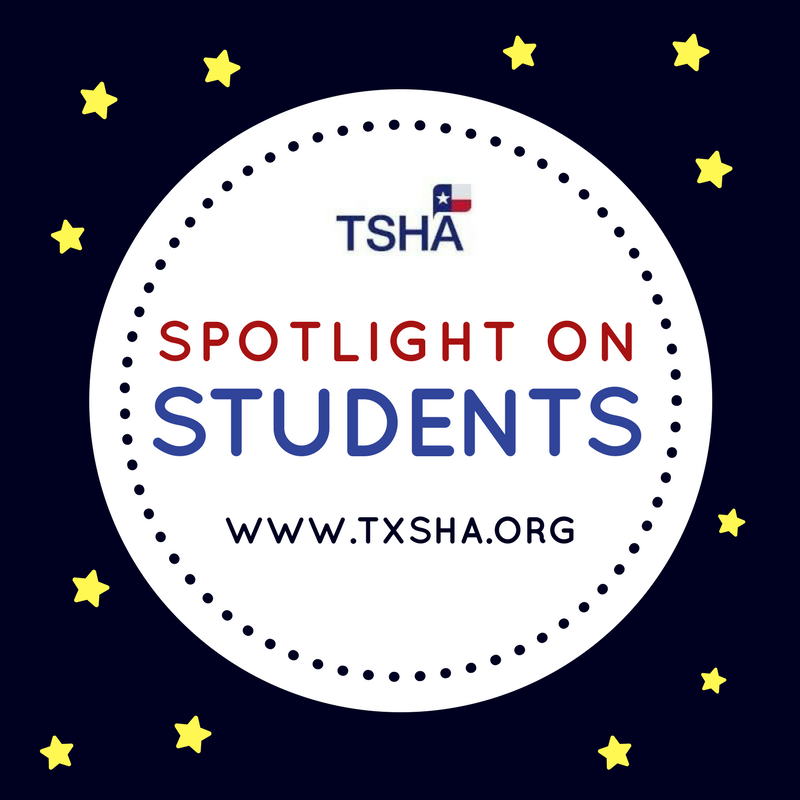
By: Madeline Beck, BA, TSHA Graduate Student Representative
Many of you are a month or two into your first semester as a graduate student. Congratulations! Getting into graduate school is a major achievement, and you are entering a wonderful time of learning and growth. As any recent graduate will tell you, it goes by faster than you think it will. As you get settled, you might start to realize that you are surrounded by similarly amazing people who all will be completing rigorous coursework and similarly enriching clinical experiences. Like me, you might ask yourself, “How can I make myself stand out as a candidate when we’re all doing very similar things?” To answer this question, I spoke to many other graduate students, recent graduates, and professionals about what you can do now to make yourself the best possible candidate for internships and clinical fellowships. I combined many of their ideas into the article below. This is focused on my area, which is speech-language pathology, but it is beneficial for audiology students as well. Whether you are still pursuing an undergraduate degree or in your last semester of graduate school, I hope it will be a beneficial resource for you on your path toward being an amazing clinician.
Volunteer for Professional and Student Organizations
I would be remiss if I did not mention volunteering for the Texas Speech-Language-Hearing Association (TSHA). You can volunteer to help at Convention or to serve on a committee, and the application to be a Graduate Student Representative (GSR) is opening soon! This is a volunteer, two-year position open to any first-year speech-language pathology graduate student or any second-year audiology student. As a GSR, you attend Executive Board meetings, visit universities to talk about TSHA, produce student-facing content for members, and complete any other tasks for student engagement. The National Student Speech-Language-Hearing Association (NSSLHA) is also a great way to connect with other students who will one day be part of your professional network. Each campus has its own NSSLHA chapter, and there is a national organization as well.
Research
Professors at universities across the country rely on student help to conduct, analyze, and present their research. This is an opportunity to see how evidence-based practices are created and tested, strengthen your analytical skills, and practice your communication abilities. It shows that you care about finding the best techniques to help your future patients and that you are an excellent written and verbal communicator. Ask your university advisors about opportunities at your school. If you are looking for a place to present your work, the TSHA Convention is a wonderful place to start!
Get Certified
While certifications in most training programs and techniques are targeted at licensed SLPs who have an active caseload, many of these programs also offer student certifications. Some of your university courses may even offer student certifications as a part of the class. Ask your advisors if any of your classes offer certifications, and if it interests you, take it! You can obtain these certifications on your own as well but make sure you verify the reputability of a certification program before you pay for it.
Be a Supporter of Community Organizations
Of course, TSHA and NSSLHA memberships are beneficial, but, in addition, many community support groups are happy to have students get involved. If you are interested in a certain population, such as people with aphasia or people who stutter, you can find the local support group in your community and see how you can help! This is a great way to get experience with and make an impact on that population.
Get an SLP-Adjacent Job
There are many ways to get professionally involved with speech-language pathology before you become a licensed and certified SLP. If you are not in graduate school, becoming an SLP Assistant is a wonderful way to gain experience. You also can find SLP-adjacent jobs, whether before or during graduate school, that develop skills that will be helpful once you get licensed. Some ideas are tutoring or literacy programs, substitute teaching or assistant teaching, rehabilitation assisting, nannying, and reception and clerical work at SLP clinics. These kinds of jobs give you transferrable soft skills in communication and professionalism that employers want while exposing you to the populations SLPs serve.
Go In-Depth
If you hear something mentioned in passing in a class that interests you, learn more about it! This is a great way to impress during an interview or clinical experience. Look at supplemental materials and cited studies from your professors, published journal articles, the American Speech-Language-Hearing Association (ASHA) website, the TSHA website, TSHA webinars, and ASHA and TSHA Conventions. There is a wealth of information online, so learn what you can but always look for evidence-based, reliable sources.
There are, of course, many more ways to make yourself stand out during graduate school. I hope these resources help you get started. Remember that you are in a rewarding field, and you will be doing important, impactful work no matter what you end up doing. I wish you the very best beginning to a wonderful graduate school career!